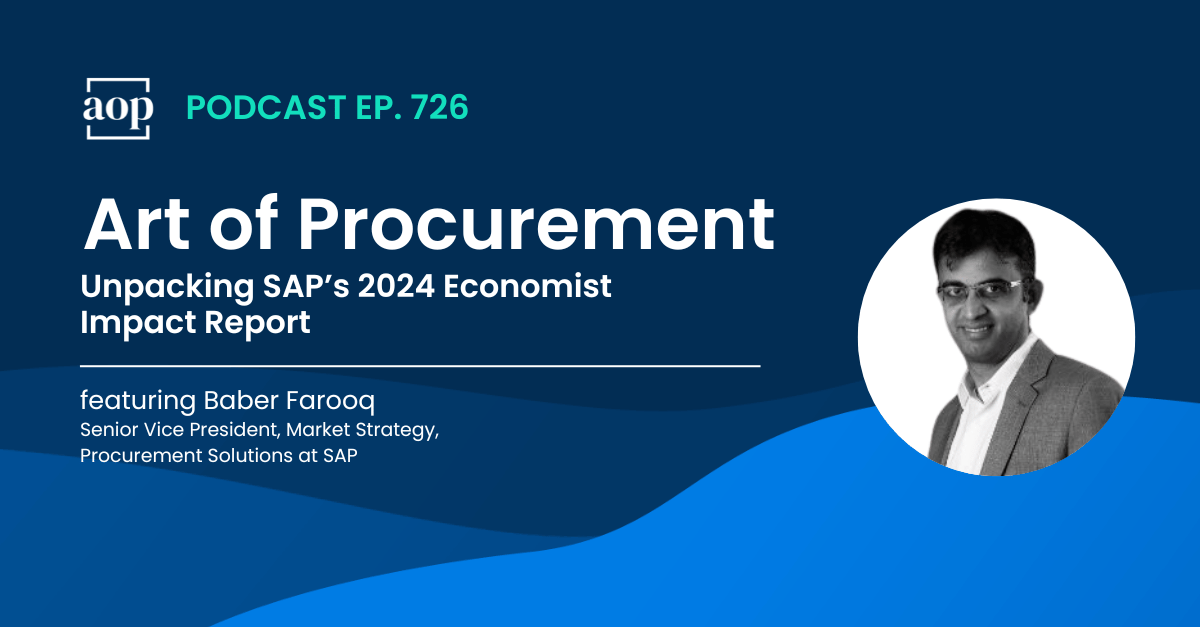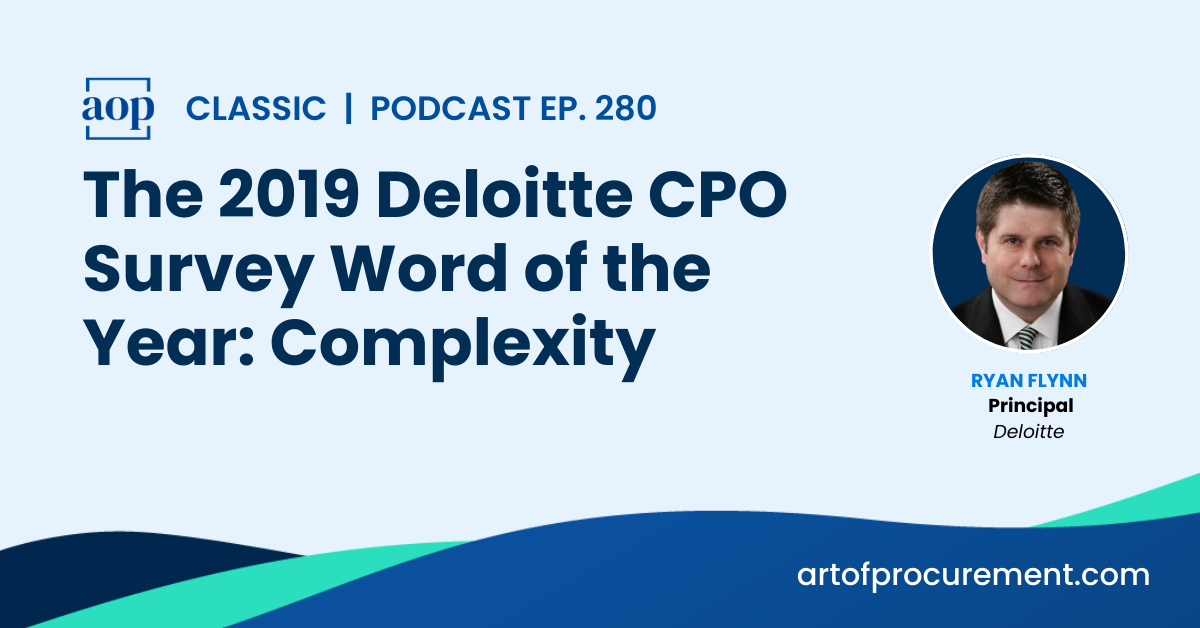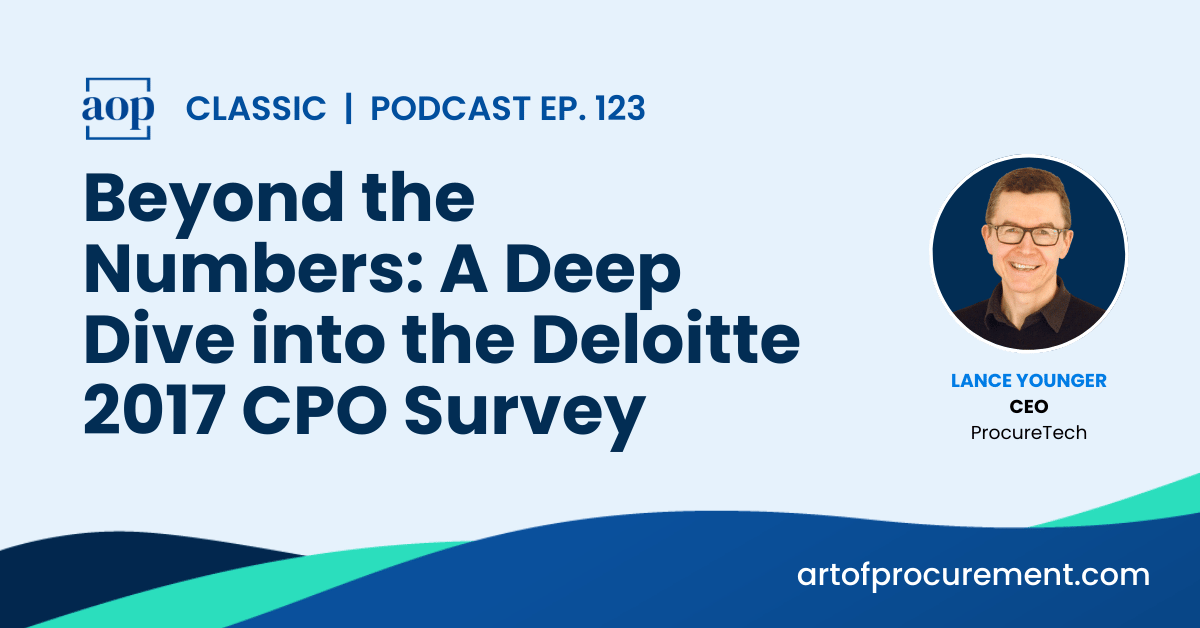
“One thing is very clear from our research: the skill sets for procurement are changing. Whatever the skill sets are today, they are not going to be the skill sets that are needed tomorrow.” –Baber Farooq, Senior Vice President, Market Strategy, Procurement Solutions at SAP
I recently sat down with Baber Farooq, Senior Vice President of Market Strategy, Procurement Solutions at SAP, to discuss insights from SAP’s 2024 Economist Impact survey and the accompanying report. Every year, they gather perspectives from thousands of C-suite leaders on the health of the procurement function and opportunities that lie ahead.
This year, Baber said there was one takeaway in particular that stood out, and it’s also something we see confirmed in other research as well. “One of the things that I think is very clear from this research and other research that is out there on the procurement function – whether it’s the Deloitte CPO Survey or anything else – is that the skill sets for procurement will be changing. Whatever the skill sets are today, they are not going to be the skill sets that are needed tomorrow.”
Shifting business priorities and rapid digitization are clearly impacting the gradual evolution of the procurement skill set, but this new report makes it clear that there are specific areas of focus when it comes to skills development and closing the future skills gap that are top of mind for procurement leaders.
Here are some of the most important skills procurement will need to develop to meet the future needs of the business, according to Baber and the research:
- Storytelling: It might be an overlooked and underestimated skill, but when procurement has the ability to tell compelling stories – especially stories backed by reliable, meaningful data – they’re much more likely to rally their stakeholders, secure buy-in, and gain the strategic footing they need to drive maximum value creation. Being able to communicate insights and recommendations to internal and external stakeholders alike and translating complex data into narratives that drive action is a skill that will never become obsolete.
- Data analytics: Now more than ever, procurement has to be able to demonstrate their comfort with managing and manipulating large data sets, derive meaningful insights from them, and then translate that into actionable strategies. Understanding how to leverage the most efficient and effective technologies, whether by automation or AI, to clean, organize, and manage large amounts of data is increasingly becoming a must-have skill for procurement.
- Technology proficiency: Digitization, especially around AI-powered tools, tops the list of priorities for procurement leaders. In the years to come, this will likely only grow in importance. Not only do procurement professionals have to be adept at leveraging the tools and solutions available now, but they also have to be continuously learning and adapting to keep pace with the rapidly-changing nature of these emerging technologies.
- Human-centric skills: On the other hand, as Baber says, “Because of AI, many tasks are going to become automated in the next five years or so, but there are still going to be many skills that can never be automated, like negotiating with a supplier, managing relationships, and innovating within the supply chain.” The challenge — or, opportunity, rather — will be for procurement to develop the technological skills they need to withstand the destabilization that comes along with a reshaping of the digital landscape while also understanding how to simultaneously leverage those intrinsically human skills that remain at the core of the function itself.
Closing the Gap Between Perception and Execution
One of the most striking findings from the survey is the growing recognition of procurement’s strategic importance. As Baber pointed out, an impressive 84 percent of C-suite procurement executives believe that procurement insights, when applied effectively, are essential for their organization’s overall strategy. Procurement’s status as a key strategic contributor is at an all time high.
“You are seeing this significant upward climb about the importance of procurement. We use these phrases ‘the profession is elevating’ or ‘the function is elevating.’ This is from a data perspective. You have the C-suite saying that these insights are critical for us running our business,” said Baber.
Unfortunately, this finding is accompanied by a more sobering caveat. While the C-suite acknowledges procurement’s potential for strategic impact, there is less confidence in their ability to deliver on these insights. Only 60-67 percent of leaders expressed confidence in procurement’s capability to execute effectively.
From Baber’s perspective, this gap presents procurement with a huge opportunity to demonstrate their execution capabilities to the business, and it also points to a critical need to arm teams with the knowledge and understanding they need to shift these kinds of perceptions.
Looking Ahead
The terrain upon which procurement stands is changing, which is impacting the kinds of skills procurement values and needs in order to continue to grow their strategic impact and relevance. Yes, staying on top of digital innovation is important, but clearly leaders like Baber understand that strengthening and focusing on those inherently ‘human’ skills and capabilities like communication, storytelling, negotiation, and relationship management not only aren’t being phased out, but they are likely more important than ever before.
Subscribe to Art of Procurement
Apple | Stitcher | iHeart Radio | Email




